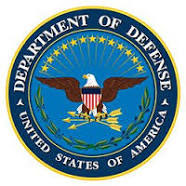It’s amazing that while Republicans support the Defense Department (DoD) so passionately, they reject its conclusion that climate change is a strategic threat that must be urgently addressed.
DoD’s 2014 Climate Change Adaptation Roadmap starts this way: "Climate change will affect the Department of Defense’s ability to defend the Nation and poses immediate risks to US national security."

A new report, National Security Implications of Climate-Related Risks and a Changing Climate, lays out – for the first time – the most serious risks in each region of the world and how Combatant Commands are integrating mitigation of these risks into the planning process.
It also begins this way:
"DoD recognizes the reality of climate change and the significant risk it poses to US interests globally. The National Security Strategy, issued in February 2015, is clear that climate change is an urgent and growing threat to our national security, contributing to increased natural disasters, refugee flows, and conflicts over basic resources such as food and water. These impacts are already occurring, and the scope, scale, and intensity of these impacts are projected to increase over time."
DoD says climate change is already aggravating existing problems, such as poverty, social tensions, environmental degradation, ineffectual leadership, and weak political institutions.
As for how DoD is preparing in the various areas of the world:
- It is preparing for development of an ice-free Arctic, such as resource exploitation and shipping traffic. If oil drilling takes off, there will be a need for "emergency response, risk reduction measures, and environmental protections."
- In the Middle East, DoD is incorporating water scarcity into planning, requiring humanitarian assistance, disaster relief and training for local militaries. While it hasn’t made headlines, four years of terrible drought led to the uprising in Syria.
- In Africa, it plans to expand humanitarian assistance and disaster relief in response to droughts.
"U.S. Africa Command (USAFRICOM) assesses humanitarian crisis as the most likely climate-related risk, foremost due to the impact that devastating events like drought and disease could have on vulnerable populations and on state stability in places already struggling with fragility and conflict."
Climate change also presents serious risks to DoD bases, specifically from sea level rise and intense heat waves. Its massive base in Norfolk, Virginia, for example, is already experiencing problems from sea level rise.
Still, Republicans voted to eliminate funding for DoD’s climate research and for the Navy’s conversion to biofuels.
Read our article, As Climate Change Worsens, So Will Human Violence.
Read the report:
